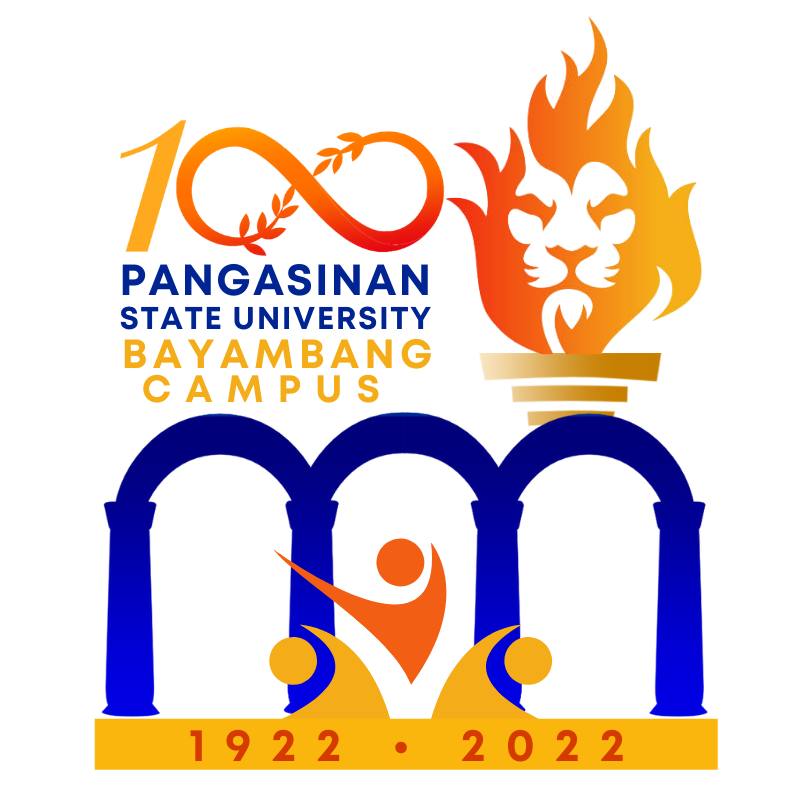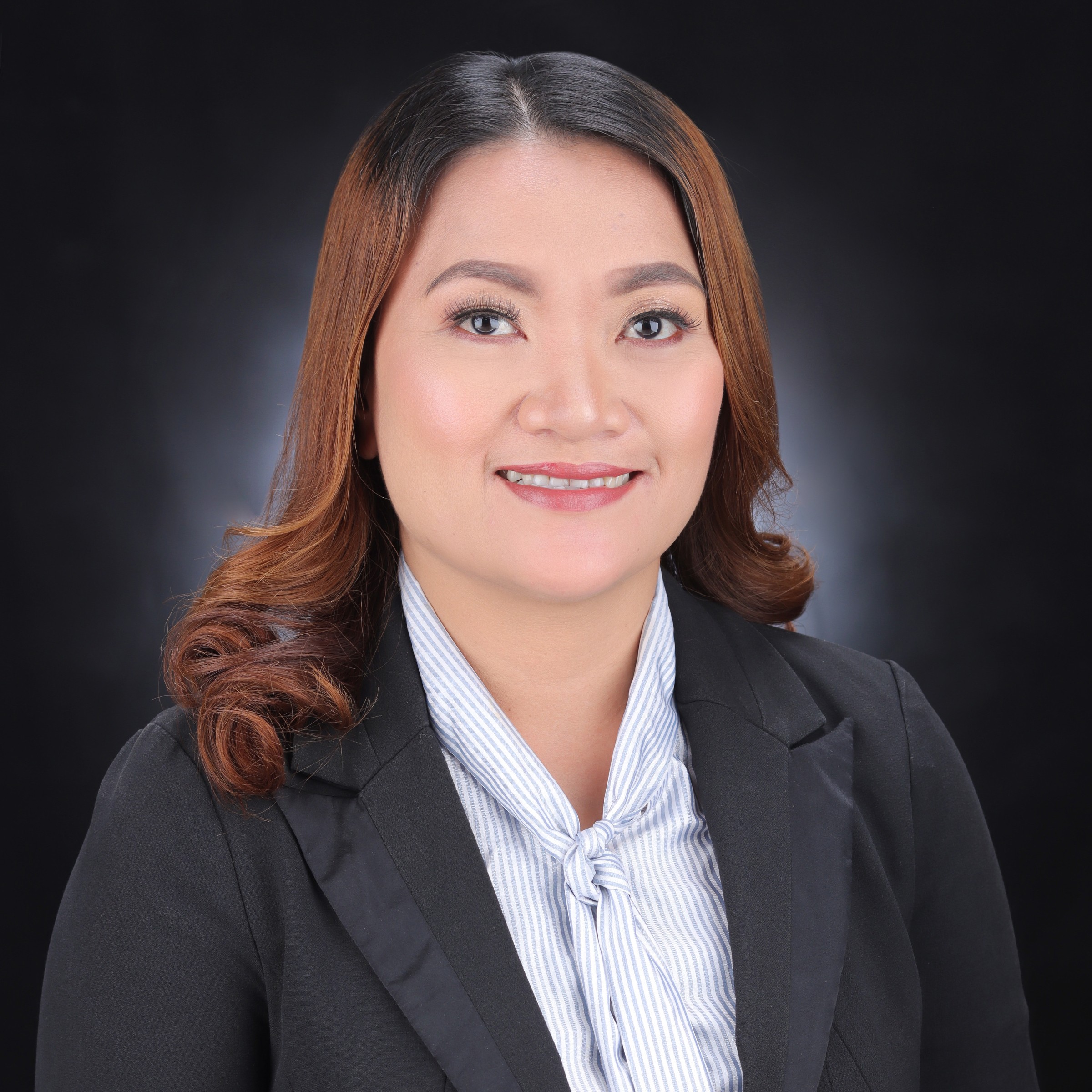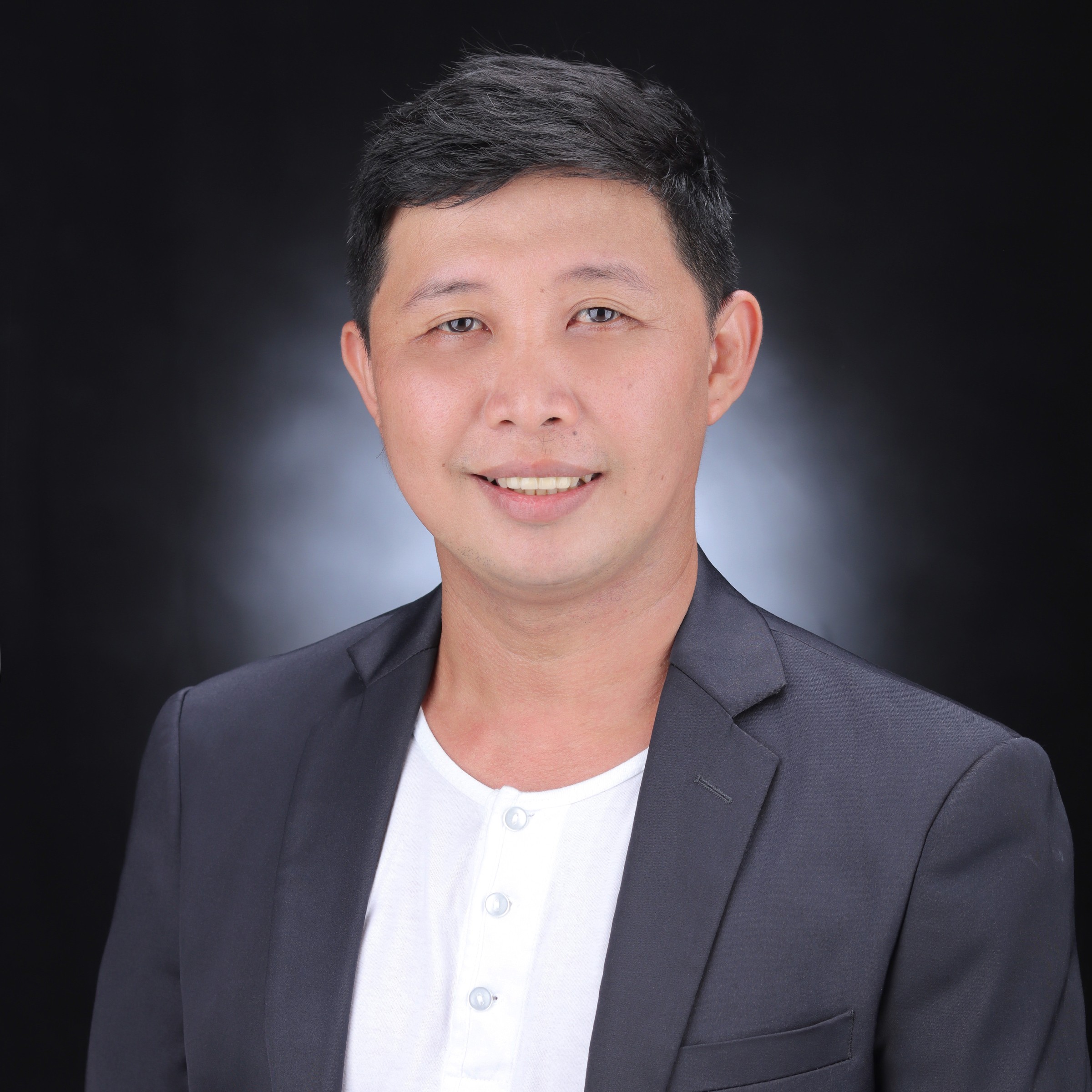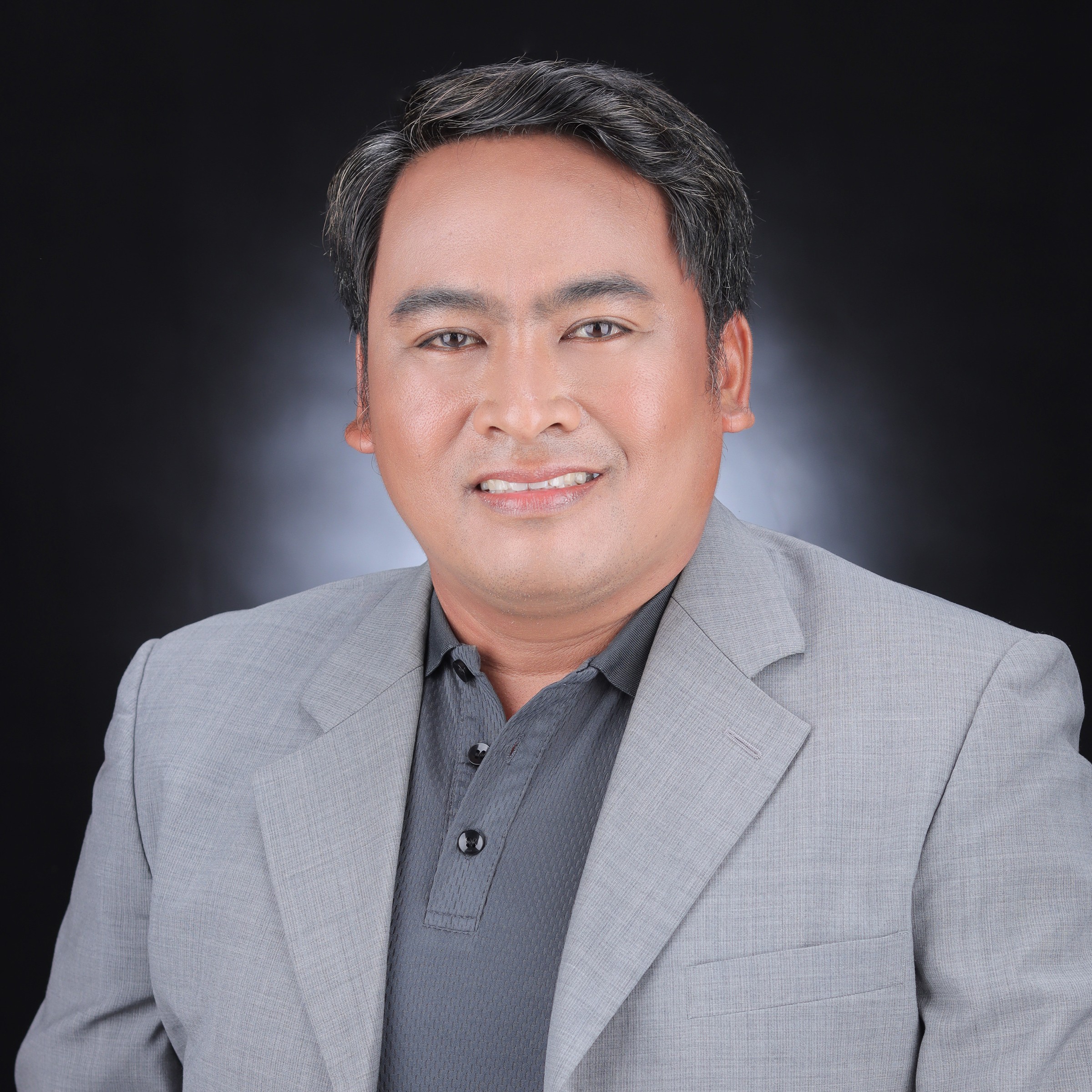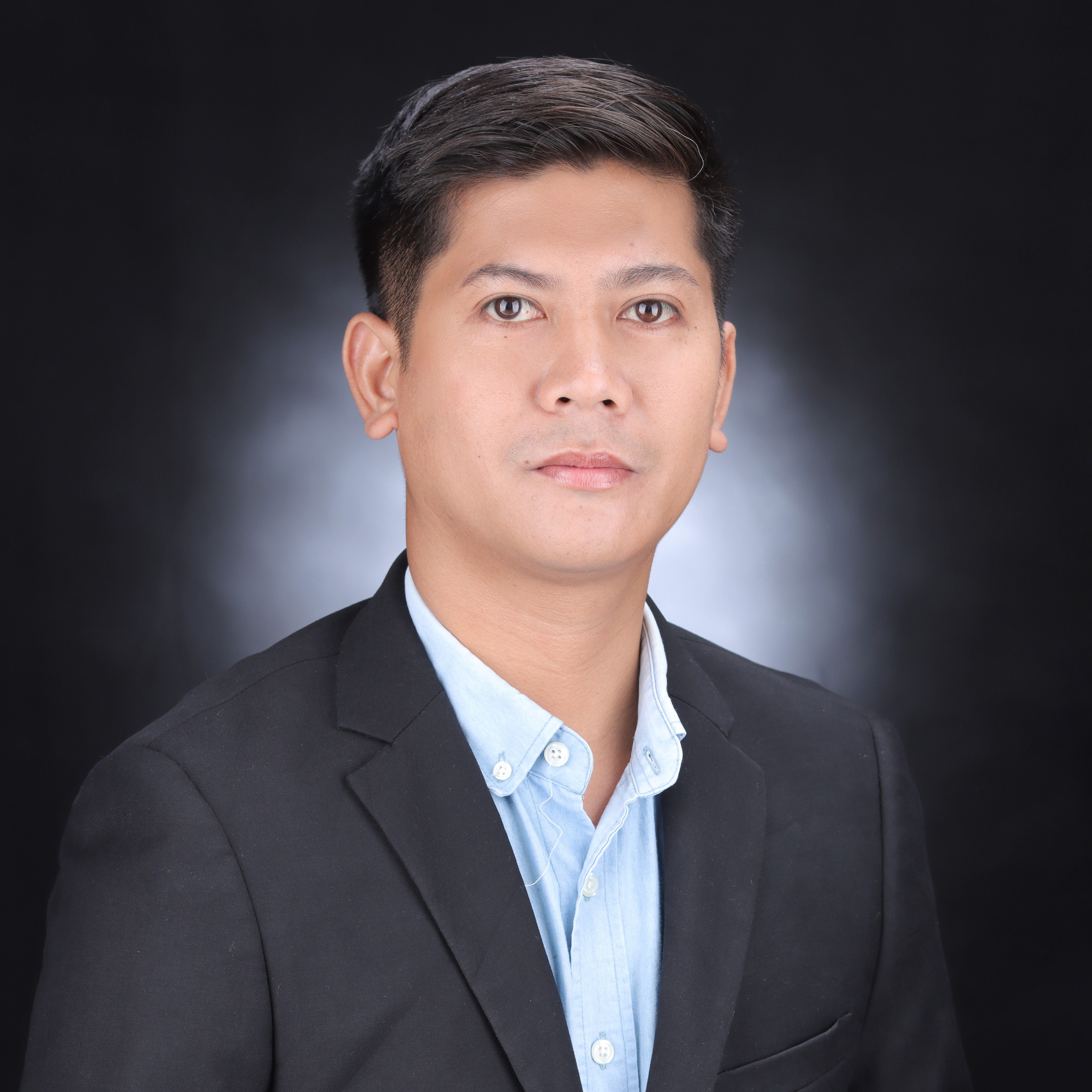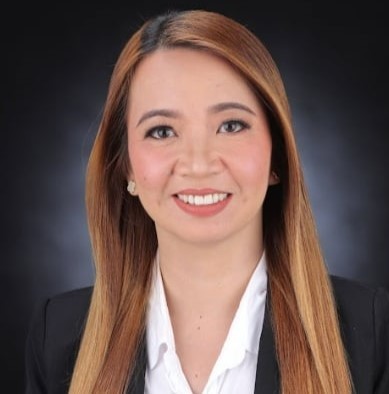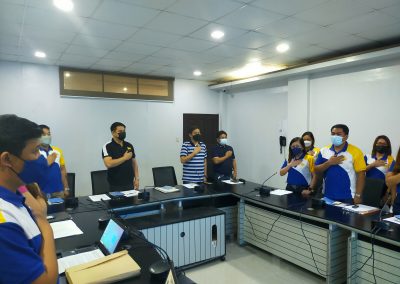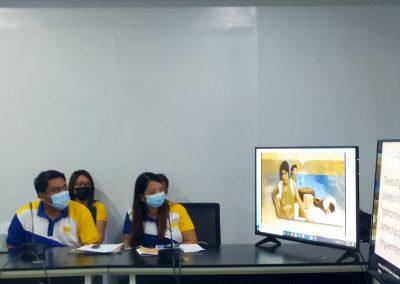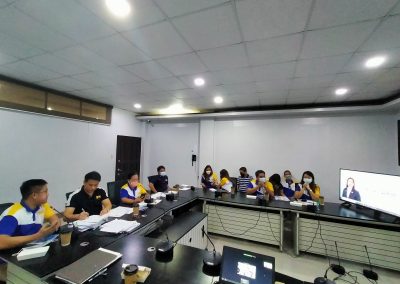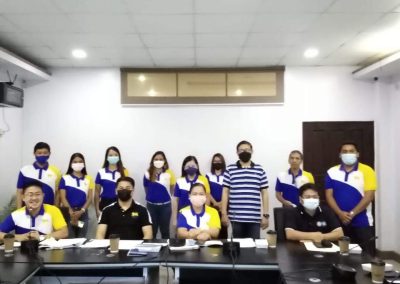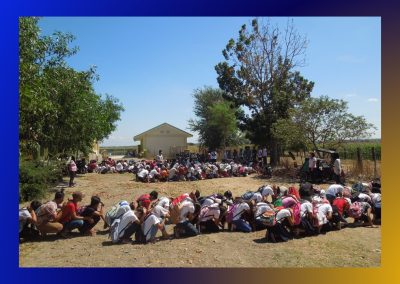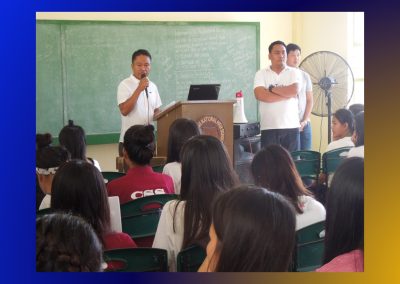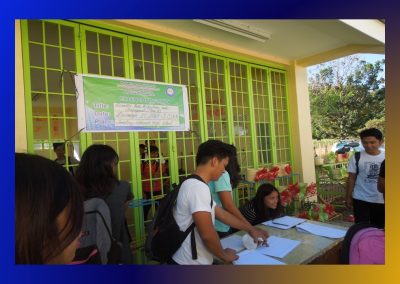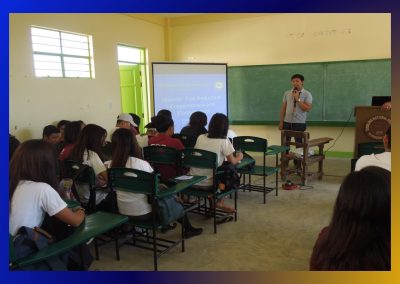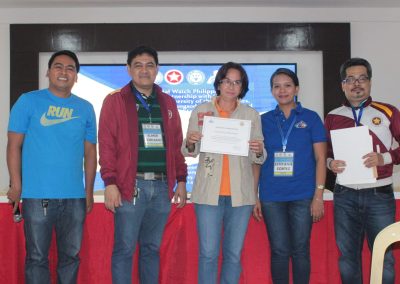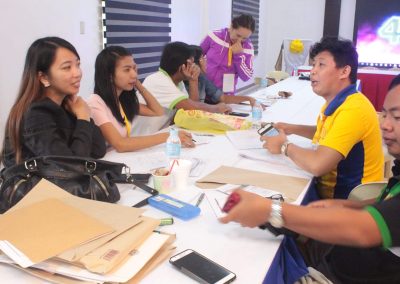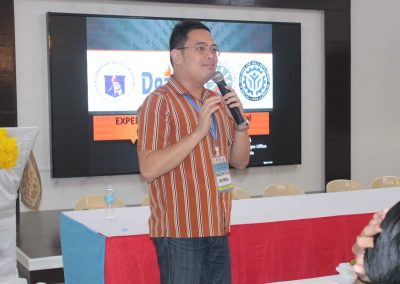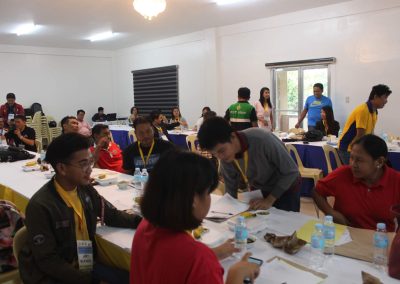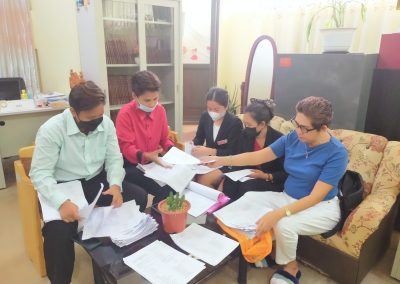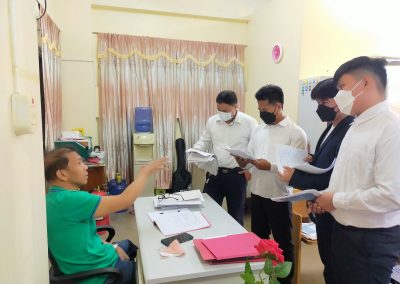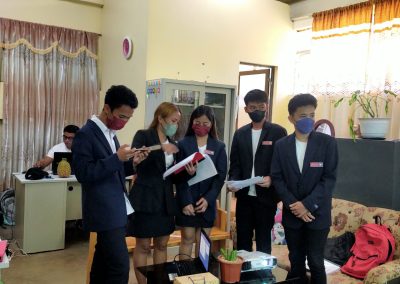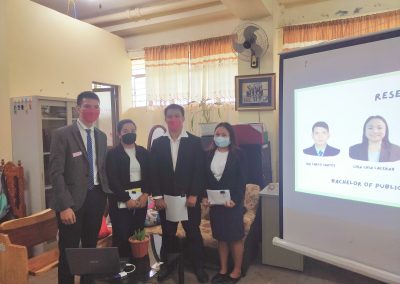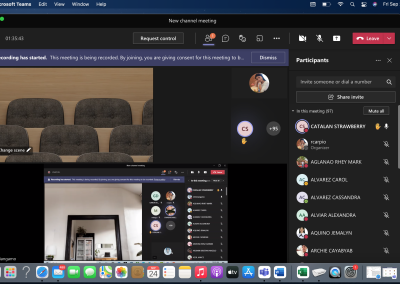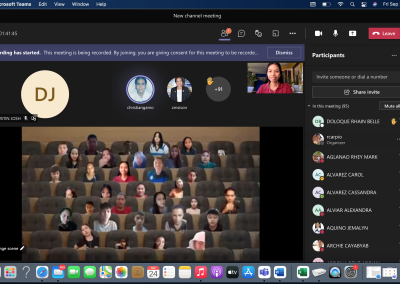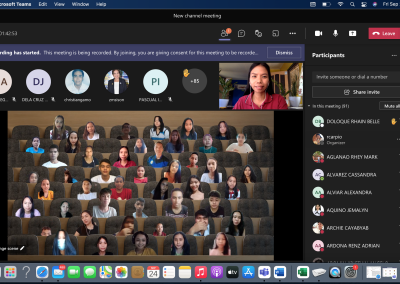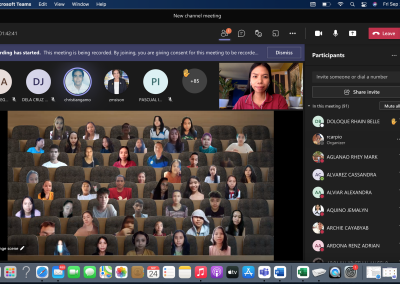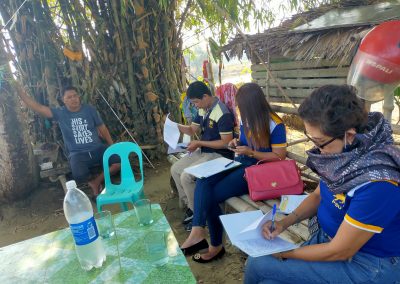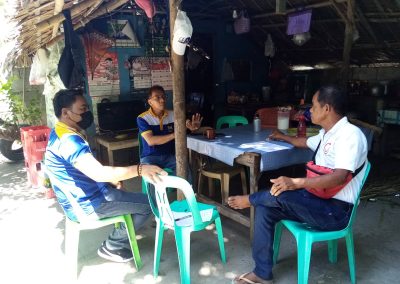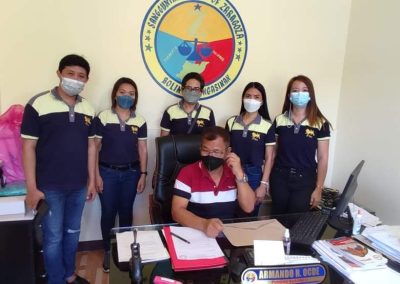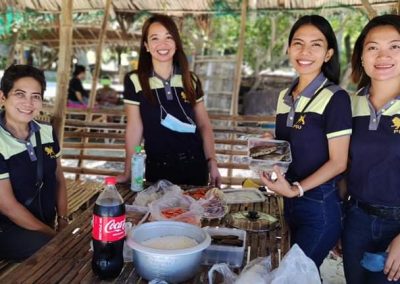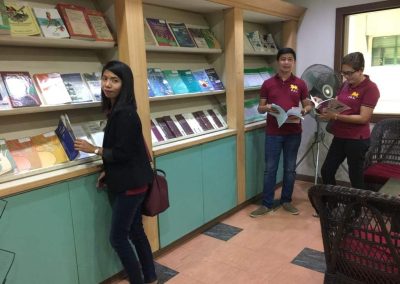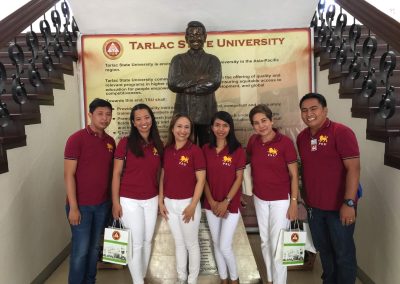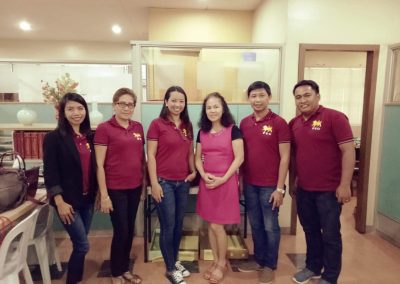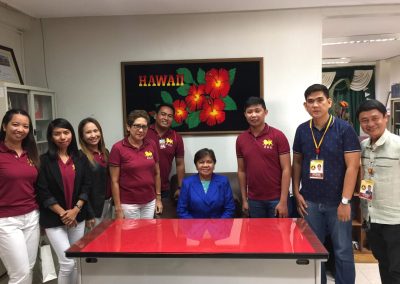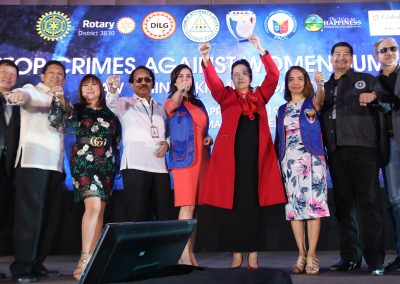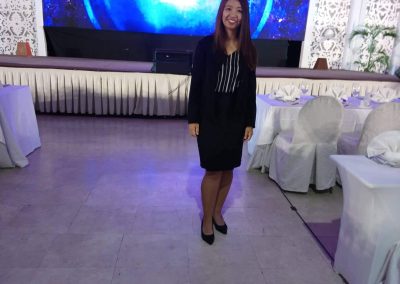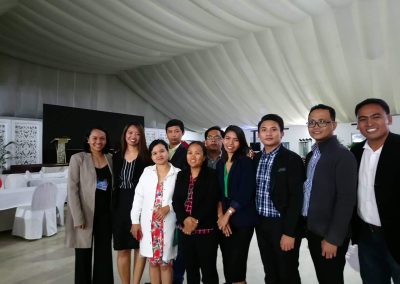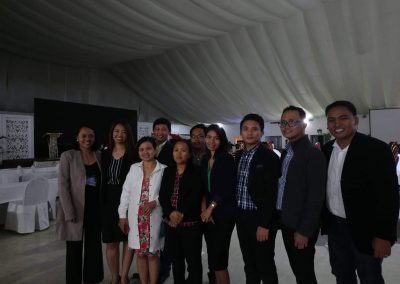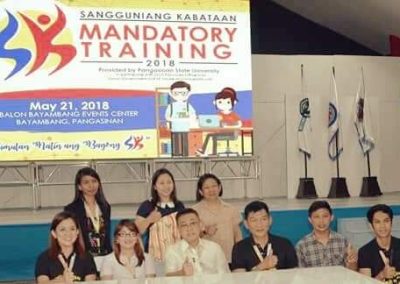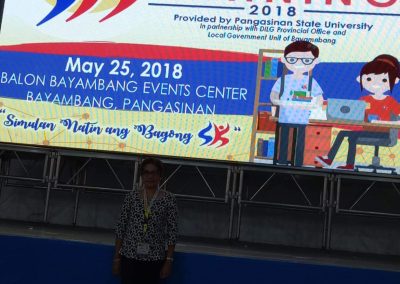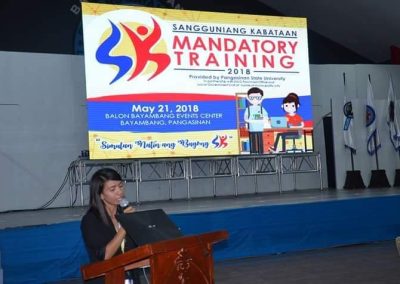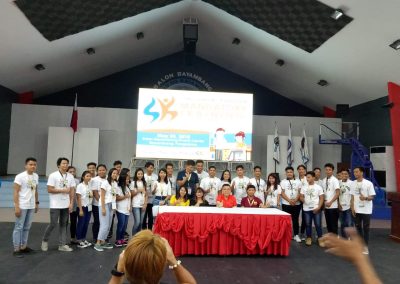
MALYN B. ALCANTARA, DPA
Department Chair
Welcome to BPA Department
The Pangasinan State University is one of the many universities in the Philippines which offers quality and accessible education for all. As a well-established institution of higher learning, it offers a wide variety of programs in different areas of specialization such as Education, Healthcare, Business, Public Administration, Agriculture, and Information Technology and Computing Sciences. Guided by its core mission to develop globally competent professionals, the Pangasinan State University continues to improve the services it provides to the students and the community through instruction, community services and research.
Public Administration is offered as a major field/degree under the Public Administration Department. BPA aims to develop public servants, leaders and change agents with the required competencies and values to serve as professionals in government, civil society and international development organizations. BPA prepares its graduates for technical and administrative positions in governments, civil society and international development organizations. It is also a good preparation for those
interested in taking up Law, or Foreign Service. Graduates can look forward to executive and policy-making positions in government, civil society and international development organizations.
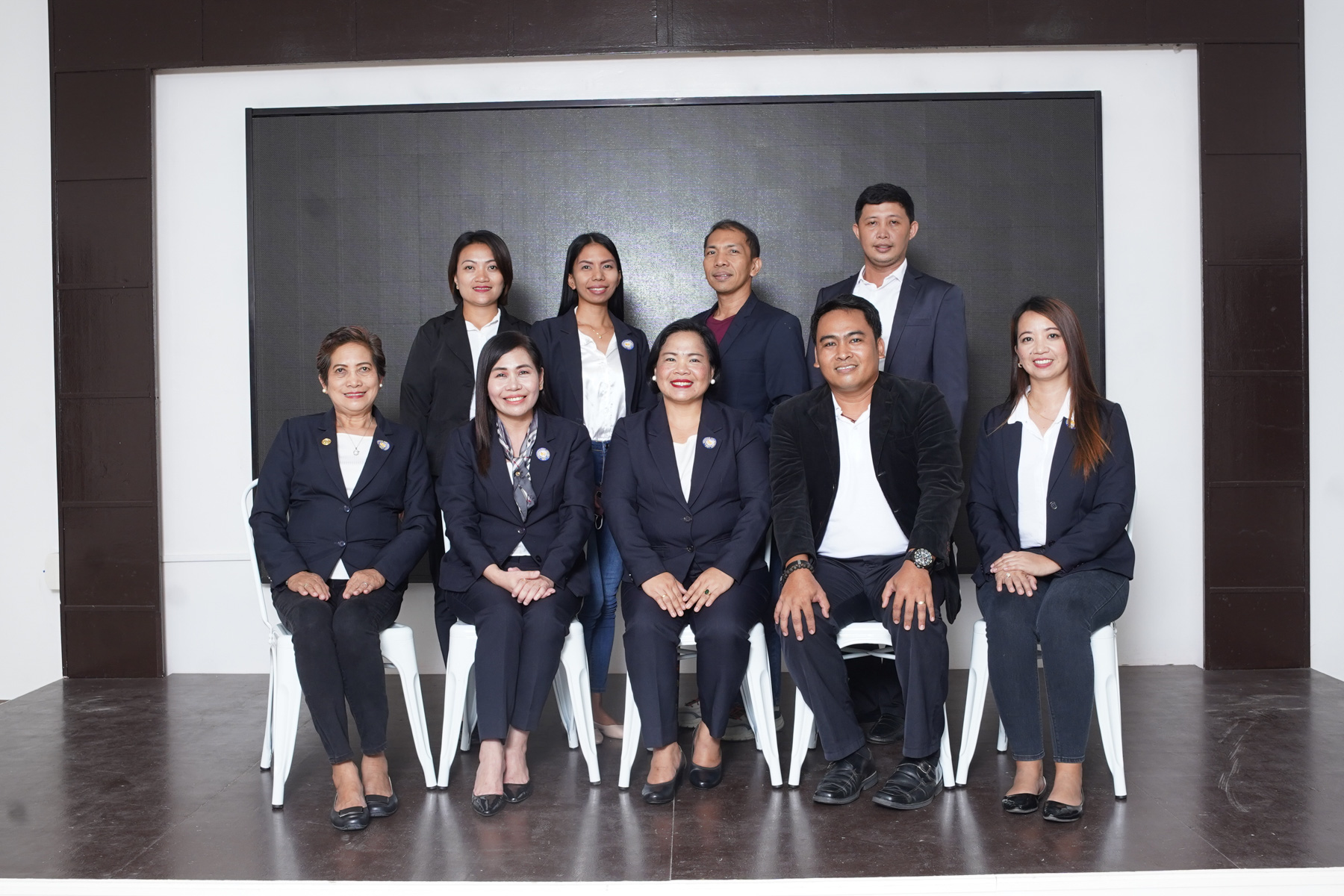
Directory
MALYN B. ALCANTARA, DPA
Department Chair
JEFFREY A. DE ASIS, MDM
Faculty
Rosalinda B. Carpio, MPA
Faculty
CHRISTIAN A. GAMO, DPA
Faculty
Darwin R. Palado, MPG
Faculty
REX J. SANTIAGO, MPA
Faculty
MADLYN D. TINGCO, DPA
CED Bayambang
EMPLOYMENT OPPORTUNITIES
- Technical assistants and middle managers in government, and international
organizations - Researchers and trainers in government, civil society and academic institutions
- Development or project managers of small and medium-sized voluntary sector or civil
society and international development organizations
- Executives in national and local government institutions including government-owned
and controlled corporations - Elective positions in local and national government
- Faculty members and administrators in academic institutions
- Executives in national, regional and international organizations
- Development or program managers of large voluntary sector or civil society
organizations
Institutional Learning Outcomes (ILO)
PO1. Demonstrate through institutional mechanisms, systems, policies, and processes which are reflective of transparency, equity, participatory decision making, and accountability;
PO2. Engage in relevant, comprehensive and sustainable development initiatives through multiple perspectives in decisions and actions that build personal and professional credibility and integrity.
PO3. Set challenging goals and tasks with determination and sense of urgency which provide continuous improvement and producing quality outputs leading to inclusive growth;
PO4. Exhibit life-long learning and global competency proficiency in communication skills, inter/interpersonal skills, entrepreneurial skills, innovative mindset, research and production initiatives and capability in meeting the industry requirements of local, ASEAN and international human capital market through relevant and comprehensive programs;
PO5. Display, socially and environmentally responsive organizational culture, which ensures higher productivity among the university constituents and elevate the welfare of the multisectoral communities and;
PO6. Practice spiritual values and morally upright behavior which promote and inspire greater harmony to project a credible public image.
Common to All Program in All Types of School (CTS)
PO7. Articulate and discuss the latest developments in the specific field of practice. (PQF Level 6 Descriptor)
PO8. Effectively communicate orally and in writing using both Mother Tongue, English and Filipino.
PO9. Work effectively and independently in multi-disciplinary and multi-cultural teams. (PQF Level 6 Descriptor)
PO10. Act in recognition of professional, social, and ethical responsibility.
PO11. Preserve and promote “Filipino historical and cultural heritage.”
Common to Graduates of a Horizontal Type of Institution as Defined in CMO 46, S 2012 (CHT)
PO12. Contribute to the generation of new knowledge by participating in various research and development projects.
Common to the General Field of Business and Management
PO13. Perform the basic functions of management such as planning, organizing, staffing, directing, leading and controlling.
PO14. Apply the basic concepts that underlie each of the functional areas of business
(marketing, accounting, finance, human resources management, production and operations management, information technology, and strategic management) and apply these concepts to business situations, if applicable.
PO15. Select the proper decision tools to critically, analytically and creatively solve problems and drive results.
PO16. Express oneself clearly and communicate effectively with stakeholders both orally and written forms.
PO17. Apply information and communication technology (ICT) skills as required by the business, political, economic, sociocultural and ecological environment.
PO18. Work effectively with other stakeholders and manage conflict in the workplace.
PO19. Plan and implement business or administration-related activities.
PO20. Demonstrate corporate or civic citizenship and social responsibility.
PO21. Exercise high personal moral and ethical standards.
Specific to the Discipline of Public Administration
PO22. Adequate knowledge and understanding of fundamentals of the study and practice of Public Administration and good governance.
PO23. High appreciation for the imperatives and challenges of public service in the context of Philippine and global realities.
PO24. High ethical values for public service, adherence to the principles of accountability, responsiveness, nationalism and democracy.
PO25. Strong sense of duty to promote and protect public interest especially for the depressed and the marginalized communities.
PO26. Adequate skills in management including planning, implementation, monitoring and human, material and resource management for government and civil society organizations.
PO27. Adequate ability to engage in scientific and policy research and national decision making.
BPA aims to develop public servants, leaders and change agents with the required competencies and values to serve as professionals in government, civil society and international development organizations.
Department Activities
EXTENSION
MOU between PSU & SWP
Disaster Risk Reduction and Management Training Phase III
The Public Administration Department spearheaded the Disaster Risk Reduction and Management Phase III at the Tanolong National High School on Decemebr 21, 2017. The event was participated by twenty-four (24) faculty members and almost 300 students form different year levels.
The highlight of the event is the lecture on how to prepare before, during and after the earthquake followed by an earthquake drill spearheaded by the faculty members of the PA Department.
Orientation Training on People’s Public Finance Institute (with Social Watch Philippines)
The “Orientation Training on People’s Public Finance Institute:Empowering Citizens in Asserting Rights to Public Finance” was finally conducted on September 19-20, 2019 at the newly renovated Learning Resource Center of PSU Bayambang.This training was organized by the Public Administration Department in partnership with the Social Watch Philippines, Polytechnic University of the Philippines and Pamantasan ng Lungsod ng Valenzuela. Participants coming from the academe, local government units and civil society organizations were invited to promote citizens’ participation, transparency and accountability in public finance processes.
INSTRUCTION
THE 4th YEAR BPA STUDENTS DURING THEIR “SO-CALLED” TOUGHEST YET EXCITING PART OF THEIR COLLEGE JOURNEY: THE FINAL THESIS DEFENSE
The progress and development of mankind has always been the product of innumerable research. Man continuously searches for phenomena that will help him/her answer the why’s and how’s of things. with the desire to arrive at adequate answers, and to satisfy his/her needs, he/she develops various instruments and techniques, and one of the best tools to help him/her is Research. Students should be made aware that no new ideas will be learned if no new research come at hand. No challenge will be rewarding if a problem is not solved. No possible creations and innovations will be out for use if not for research.
MEET AND GREET
BPA DEPARTMENT HELD ITS VIRTUAL WELCOME AND ORIENTATION FOR THE BPA FRESHMEN STUDENTS
A virtual welcome and orientation are one of many ways to meet and greet the incoming BPA freshmen students amid pandemic where face-to-face learning is not allowed. In this particular event, the department used the MS Team since this is the official online platform the University is using. It allows both faculty members and students to have smooth communication. The first part of the aforementioned event started by “getting to know each other” followed by “kumustahan”. Both faculty members and students shared their experiences with the new normal as well as their coping mechanisms.
The chairman of the department, Mr. Christian A. Gamo presented the agenda for the virtual orientation while the students were listening and viewing the PowerPoint presentation regarding the following: 1)Core Faculty of the department; 2) Nature of the Field of Study; 3) Program Goals and Objectives; 4) Specific Professions/Careers/Occupations for Graduates; 5) Program Outcomes; 6) Curriculum Description and Curriculum Components; and 7) the Means of Curriculum Delivery
The last part of the event is the Q&A. Students were given chances to ask questions or to make some clarifications regarding the degree program. The event then ended gracefully.
RESEARCH ACTIVITIES (re: Asin Research)
“No research without action, no action without research” – Kurt Lewin
The BPA faculty working on their research entitled “Implementation and Impact of the Asin Law (RA 8172): The province of Pangasinan Experience” and “Revisiting the CLUP of LGUs in Pangasinan for Salt Industry: Basis for future Reforms and Direction” which will be presented in the upcoming Salt Congress. The results of these studies may be used as the basis for prospects that will strengthen the now ailing salt industry and in turn, increase its contribution to the economy.
BENCHMARKING ACTIVITIES
In pursuit of academic excellence and in meeting the program’s ambitious targets, the BPA faculty conducted its first but indeed not the last benchmarking activity which involves the three renowned universities not just in the Philippines, but worldwide. These are the University of the Philippines, Polytechnique University of the Philippines, and Tarlac State University which are outstanding not just in the field of Public Administration but are recognized for providing quality education all over the world.
This benchmarking activity was conducted to understand what is the acceptable standard concerning the BPA program, and where the BPA program of PSU Bayambang stands vis-à-vis that standard. This activity also serves as the gateway to strive for continuous improvement, the need to maintain the competitive edge, and most importantly, the start of collaboration for future projects, extension, linkages, and other activities that aim to promote the BPA program.
STOP CRIMES AGAINST WOMEN SUMMIT 2019
The faculty members of the Public Administration department together with the Social Science department attended and facilitated the workshop on this summit with the theme “Ihinto Krimen Against Women” (IKAW) which highlights the role of women and the youth in speaking out against injustices in society. This was conducted thru the collaborative efforts of the organizations headed by Presidential Anti-Corruption Commission (PACC) Chairman Dante Jimenez; Volunteers Against Crime and Corruption (VACC) Chairperson Cory Quirino; and Interior and Local Government Undersecretary Martin Diño, with Public Attorney’s Office (PAO) Chief Persida Acosta. This was held at the Manila Hotel last April 23, 2019.
SK MANDATORY TRAINING 2018
For the first time in the history of SK, thru the collaborative efforts of the Department of Interior and Local Government, the Municipal Local Government Operations Officer, and the Public Administration Department (PSU-Bayambang), a mandatory training program for SK officials was realized. This training aims to equip our youth leaders with the necessary knowledge and skills to perform their functions well. This runs from May 17-May 26 covering the modules on decentralization and local governance, SK history and salient features, how to conduct meetings and craft resolutions, planning and budgeting, and code of conduct and ethical standards of public officials which were discussed and facilitated by the BPA faculty of PSU Bayambang
